|
Connecting with a donor or potential donor is so vital before you ask for a gift. It's like removing many of the roadblocks between you and that "YES!" response you want.
People want to give to people they like. It's not much of a secret. Ultimately, as a fundraiser you are a conduit for the relationship between that donor and the institution (not with you personally) but they must enjoy speaking with you to want to continue a relationship with the institution. This is an important skill for any fundraiser to develop, from phonathon callers on up to executive directors, deans and development officers. I have been to MANY call centers where they use the same tired rapport-building questions year after year after year. We cannot let this happen. No one wants to spend their precious time telling a new person why they haven't been back to campus lately just like they did last year. Bad rapport-building has the opposite effect on the donor than that which we wish to cultivate. The first rule of building rapport is it must be DIALOG not MONOLOGUE. You must ask questions that will solicit meaningful conversation and back and forth. You (no matter if you are a student caller or the Vice President of Advancement) must not deliver a litany of great-stuff-happening-at-our-institution without stopping for breath. So, following this rule, we must construct meaningful rapport building questions. The second rule about rapport building is that these questions get stale. Every year (at least) new rapport builders should be generated and put into rotation. Here is some guiding criteria for generating these questions. Rapport building questions should:
What are some examples of strong rapport-building questions?
Does your rapport building need a refresh? Do you have some favorite rapport-building questions that I forgot to mention on my list? Comments and questions are, as always, welcomed and encouraged! Cheers, Jessica Cloud PS - If you liked this post, you might also like these:
PPS - If you found this article helpful, please comment and let me know. Also subscribe to Real Deal Fundraising so you don't miss a post! You'll get my guide to Call Center Games for Free!
Once you’ve been told never to call back, been hung up on countless times, and told “no” in so many variations ranging from “I’d love to, but I can’t afford it” to an expletive-filled, irrational rant, you just don’t worry about it anymore. Callers carry this confidence into their working life whether they remain in fundraising or not. It’s like a secret superpower from working in the call center.
Not only do former phonathon callers have mad phone skills (friendly, engaging, polite, etc.) they have a rocking perspective on how to approach difficult situations. Smile and you will change your chances of getting what you want. Believe you can do it and you can.
I still talk on the phone for hours a day as part of my job. Even though I’m an extravert, after I’m done with work, I’d rather have my nails pulled out than talk on the phone for “fun”. This pattern plays out amongst my friends who worked in call centers too.
Either way, though, call center work can take a naturally competitive person and turn them into an Olympic champion of smack-talk. If you were a caller, you wouldn’t think twice about kicking your friends off the island if it meant they stood between you and a $25 Red Lobster gift card. Former phonathon callers exhibit this good-natured ruthlessness well beyond college and employ this trait in many different fields of endeavor.
Doing all of this when you know that your supervisor is listening in and you’re being evaluated, also no sweat. Phonathon callers can get it all done flawlessly.
Everyone who has been a caller has selected the wrong script, got lost in the middle of a sentence, drawn a blank on the name of the institution they are calling for, or called the prospect by the wrong name. If you take yourself too seriously, you just won’t survive in phonathon. A sense of humor is a must.
Student supervisors and call center managers give callers tips on everything from overcoming objections to how many times you say “umm” in a sentence to the quality of your voice itself. You can spot a former phonathon caller anywhere because they come to crave the kind of pointed and applicable feedback they got in the call center. They crave it because when implemented it immediately impacted results in a positive way.
Many great callers learned to read or complete homework assignments while the phone was dialing. You also learn to prep your script, ask your supervisor a question on mute, and place a bookmark in your chemistry book all while your prospect tells you about the Homecoming court of 1954. When you’re done with all that, you seamlessly transition back into the conversation with a “How wonderful! Mrs. Smith, I don’t want to take up too much more of your time tonight. Let me tell you why I’m calling…”
In the call center, we become emotionally dependent upon thermometers, countdowns, and other displays of our progress and performance. For me, it manifests in the use of my bullet journal with lots of colors and goal charts. Likewise, I love old school, goofy clip art with simple cartoonish lines. I like to use them in presentations to make folks laugh but also it brings me back to my call center days when results were often tied to being as goofy as possible to get the attention of the group.
This benefits these individuals later in their life because they aren’t afraid to negotiate for a raise, ask a spouse about preparing a will or be persistent to get a sale. I hope you had as much fun reading this post as I did putting it together. What other traits do you think come from working in a call center or in fundraising in general? If you were a phonathon caller, do these seem true for you? Comments and questions are, as always, welcomed and encouraged! Cheers, Jessica Cloud PS - If you liked this post, you might also like these:
PPS - If you found this article helpful, please comment and let me know. Also subscribe to Real Deal Fundraising so you don't miss a post! You'll get my guide to Call Center Games for Free! 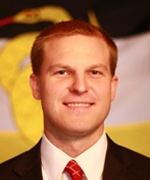 This week's Thursday feature is an interview with Markus Jones, Senior Vice President for Development of the Sigma Nu Educational Foundation. His organization launched their first ever phonathon last year and I asked him some questions about the process and what the results have been for his organization.
Phonathon fundraising represented a method of communication that I felt our organization had not fully explored in the past. Likewise, it offered a unique opportunity to reach non-donors, friends and parents of our members, whom we had never previously contacted. As a major gift fundraiser, I also saw the Phonathon as a means of prospect generation for future campaign efforts. We needed to resupply the pipeline for our mid-range and major gift officers to cultivate in the very near future. We have been very carefully referring outliers from this effort to those gift officers.
Additionally, we were met with similar concerns from other members of the staff who are not directly involved with the fundraising operations. I worked with our communications team and other fundraising staff to develop internal communications that addressed their concerns in advance of launching the campaign. We shared FAQs, details about database segments, call schedules, and sample call scripts with everyone on staff prior to making calls. We also invited them to actively engage with donors who may have questions or concerns along the way. After the first week of calling, we distributed “canned responses” to commonly heard objections to the staff assigned to the front desk at the Fraternity Headquarters. We also created a page on our website dedicated to the Phonathon which carefully identified the company we contracted to conduct the calls, constituents who would receive the calls, why we were calling, and the timeframe in which calls would be made. This also helped to mitigate some push-back we received from outside constituents and, I believe, added some validity to the callers’ efforts.
Side note: Our vendor employs a very diverse group of callers and actually worked with us to recruit collegiate members from one of our Sigma Nu chapters near the call center. The feedback from the callers was also really great. They all enjoyed working on the campaign and speaking with our alumni on the phone. This was very encouraging for future partnerships.
More about Markus Jones: Prior to joining the staff of the Sigma Nu Educational Foundation, Markus served as a Development Officer at the University of Southern Mississippi Foundation. He began his career in nonprofit development and volunteer management following Hurricane Katrina as the Director of Marketing and Resource Development for the United Way of South Mississippi in Gulfport, MS. Markus has worked in the nonprofit development field for his entire professional career and strives to continue this path in the future. He holds a bachelor's degree in Advertising from The University of Southern Mississippi and in his spare time Markus enjoys books, the outdoors, volunteering and traveling. If you haven’t heard, Stanford University ruffled some feathers last week by announcing that is doing away with its phonathon. Here's the announcement from Stanford. Donor Relations Guru and Annual Giving Network wrote about it.
Here’s my take. Stanford is not the first to get rid of their phonathon and they won’t be the last. Does that mean that phonathon is dead? No way! One friend of mine said “So It Begins” on Facebook about this because with such a high profile university ditching their phonathon, annual giving specialists all over the country will have to go into a new cycle of justifying their programs to administrators who think that their universities are also Stanford. The truth is that Stanford could afford to stop fundraising full stop and they wouldn’t lose any market share for years. Eventually revenues might drop, but it would take a while. The loss of new fundraising revenue wouldn’t seriously impact their rankings or ability to recruit students for decades probably. Stanford has two very powerful things that your university probably doesn’t have that make it possible for them to say to donors: “You meet us on our terms. We don’t feel like calling you anymore.” Or as they put it in their paperwork. “Give online. It’s the modern way to give!”
Donor Relations Guru makes the point that we should be multichannel and of course we should. Giving donors options and honoring their choices should be part of your plan. But if you aren’t Stanford and you don’t have a long game plan to replace the things that phonathon brings you (up-to-date data, donors, positive public relations, dollars, and donor education) proceed with caution. Don’t get rid of any medium that you can afford that gives your donors another way to give. I work for an institution that stopped communicating with donors via phone a while back and now we have to rebuild and repair those relationships. Phone calls have significant advantages that haven’t changed:
Imagine if we just gave up trying to visit major donors and just decided to tell them all to give online. I don’t think we would clutch our pearls. We would laugh and wish that institution the best in their experiment. (I guarantee that political candidates aren't even considering giving up their "Get Out the Vote" phonathons!) Personal interaction works best. We know this because fundraising is about relationships. But it is also about asking. Phonathon allows us to do both and reach a large amount of people at the same time. No other medium does this. If your phonathon isn’t working, it probably isn’t because the medium is dying. It’s more likely that the problem originates from poor caller training/management, you have poor contact rates or ironically, you aren’t calling enough to make your fixed costs worthwhile. There are solutions to all of these issues. Motivation goes far beyond call center games. Games are one of the most visible manifestations of external motivation in the call center but I have seen too many well-meaning managers become over-fixated on games. It is important to have other things undergirding your motivational strategy so that the games become only the icing on the cake.
Make sure your call center has:
All of these things come before the nightly games. It is also important that games not detract from the purpose of the calling shift, which is to raise money efficiently. Games should never take time away from calling or create a situation where callers are disturbed or distracted when talking with prospects. That said, call center games are a cornerstone of what makes having a such a hard job FUN! You can get some great ideas for new call center games (and new twists on old favorites) by subscribing to Real Deal Fundraising. My "15 Best Call Center Games" guide is my gift to you for subscribing to this blog. Click here or the button below to sign up for updates today.  Now is the time to be thinking about how you are going to train your new callers. But, the truth is you aren’t just training phonathon callers. You are training young fundraisers. If you do it right, every caller in your center will have a knowledge of fundraising that rivals most experienced development officers. The techniques that your young fundraisers learn can be applied in nearly any area of business that they choose to pursue. If your system reinforces these lessons, they will be incredible young fundraisers. They will raise serious money for your institution and have an impact on many students, faculty, and staff. From the time he or she is hired, you are a part of that student fundraiser’s education. He or she will also be an integral part of the life of your educational community. A Holisitic Approach to Training If staffing is about quantity, training is about quality. Of course, you want staffing to be about quality too but speed takes precedence. In training, you should still be as efficient as possible but that isn’t as important as being effective. You want to take all of these students you hired and make them into incredible young fundraisers. When someone says phonathon training, generally “new hire training” is the first association we make, as if that’s the only kind of training there is in a call center. Training is necessary throughout the entire time that a caller works with your phonathon. If we take a more holistic approach like this, quality and quantity begin to work together. Believe it or not, you can get more done in less time and it works to the benefit of both the callers and the program. Here’s my proposal: what if we presume that for the first couple of weeks new callers will be calling only future donors (my optimistic phrase for a non-donor)? Suddenly, there a ton of things we just wouldn’t need to cover in new hire training. Upgrades, special giving societies, leadership levels, extra objection responses and fresh ways to build rapport could wait a couple of weeks or a month. Now this change of perspective on new hire training as outlined above does three amazing things:
Training doesn’t only happen on the front end. Training actually starts in the interview process, as that shapes how the employee views the expectations and responsibilities. And training continues every single night in team meetings, coaching, and formal continuing education sessions. Training continues as new hires become donor callers, donor callers become new hire mentors, and lead callers become student supervisors. Once you switch your perspective, you don’t feel the pressure to squeeze everything in during new hire training. You can then consciously design a holistic growth and education program that will teach each student fundraiser what they need to know when they are ready to learn it. Oh, by the way, this kind of "life-cycle" training that I recommend will have the end result that you “grow your own” call center leaders. If you put these strategies into play, you will have many productive callers, but also many mentors and leaders in your call center. When you get promoted, and you will, you will have graduating seniors ready for a chance to make their mark on your institution. Talk about succession planning! |
Jessica Cloud, CFREI've been called the Tasmanian Devil of fundraising and I'm here to talk shop with you. Archives
June 2024
Categories
All
|




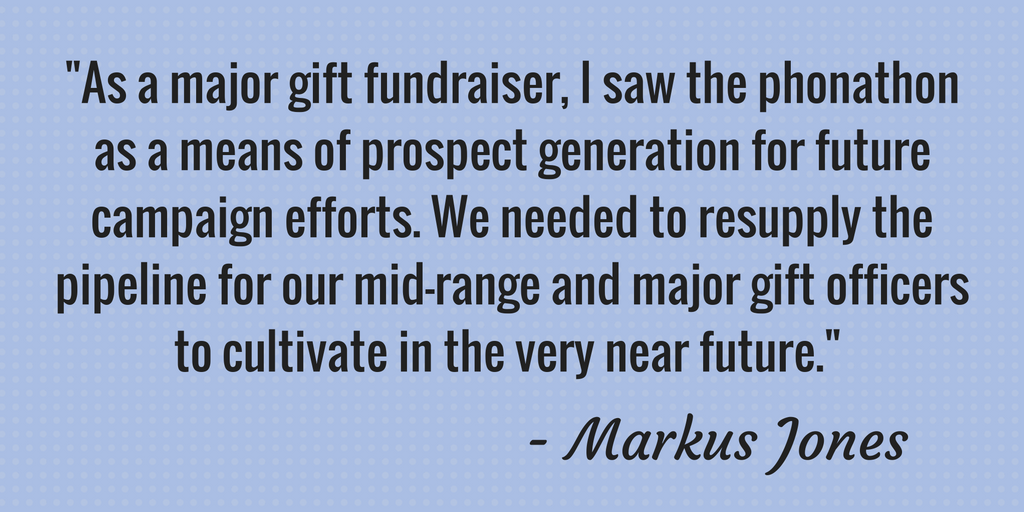
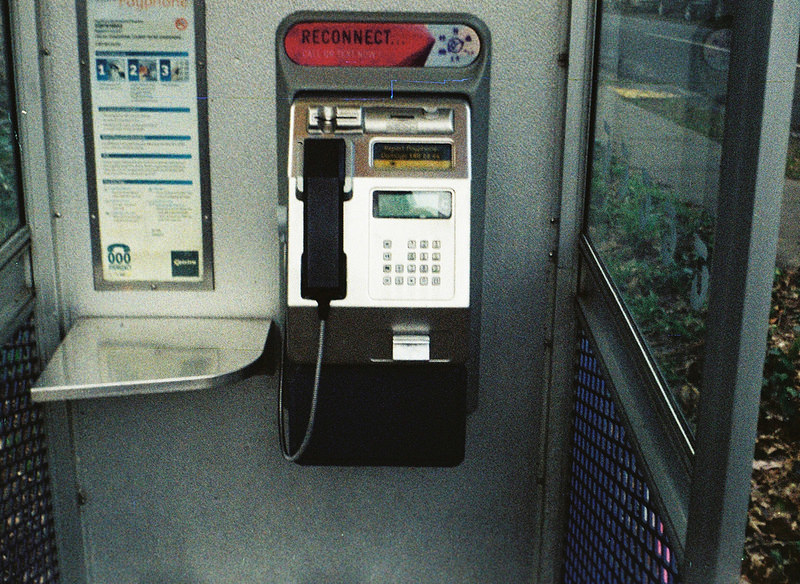
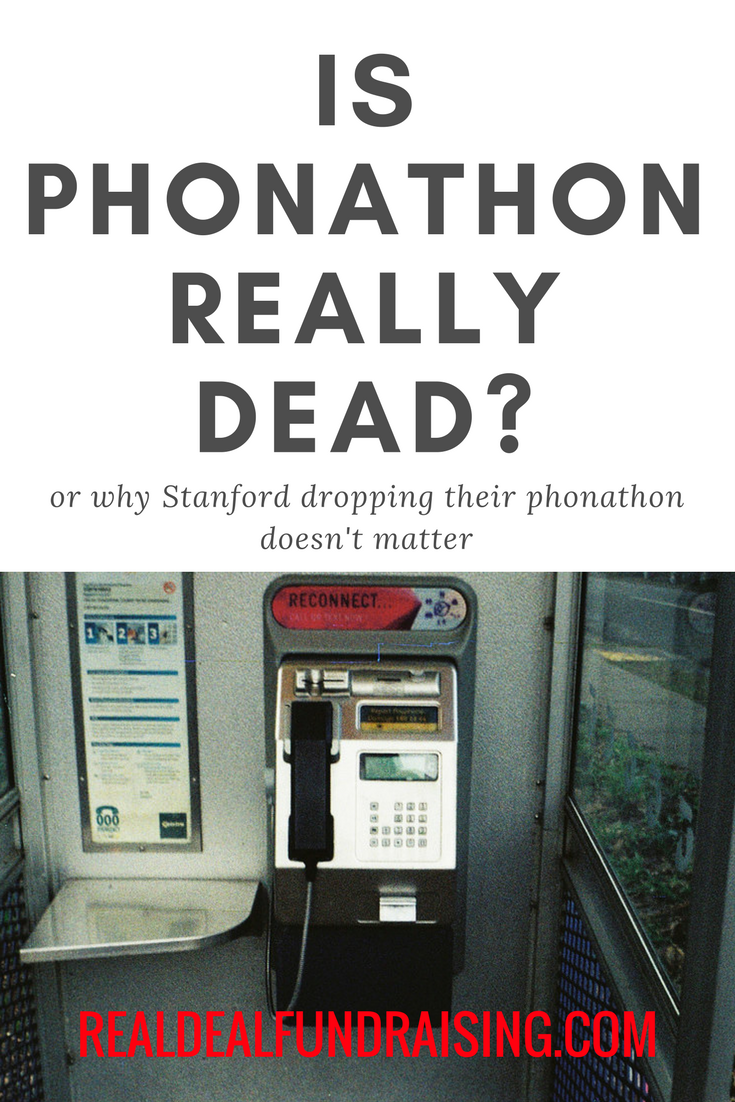
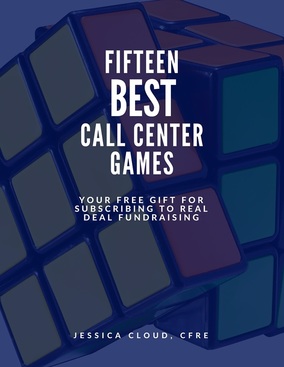

 RSS Feed
RSS Feed
